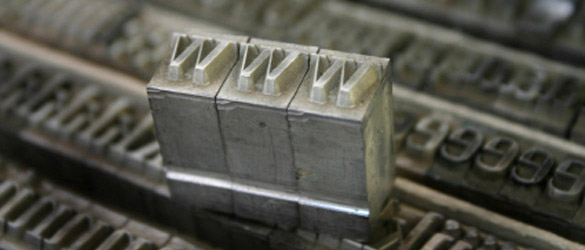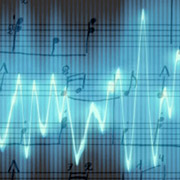Said and Done
March 2014 Edition
Published by the Office of the Dean
MIT School of Humanities, Arts, and Social Sciences
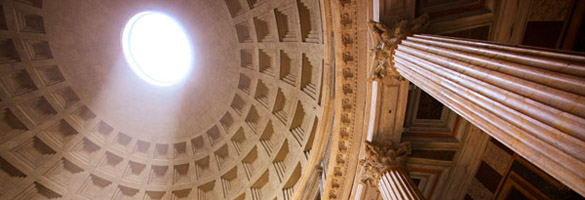
QUOTABLE
"The documentary field now is like looking at the earliest years of television — new tools, new storytelling techniques, new participants. It's a very exciting moment."
— William Uricchio, Professor of Comparative Media Studies, Principal Investigator, Open Documentary Lab, and Game Lab
HONORS AND AWARDS
Burchard Scholars announced for 2014
31 students have been named as the 2014 Burchard Scholars, an award that honors MIT sophomores and juniors who demonstrate academic excellence in the humanities, arts, and social sciences, as well as in science or engineering. “The Burchard scholars are some of MIT’s liveliest undergraduates,” says Margery Resnick, professor of literature and director of the Burchard Scholars Program. “Selection is extremely competitive, and the students chosen are unafraid to wrestle with new ideas.”
More
FEATURE
The Open Documentary Lab puts MIT in the vanguard of new media storytelling
Founded in 2012, the OpenDocLab builds on MIT’s impressive legacy of media innovation. Director Sarah Wolozin, says: “MIT is uniquely qualified to lead this endeavor, because of the understanding at CMS/W of how people use media, and the level of expertise here in new technologies, games, and civic media — all areas that storytellers are now incorporating. Principal Investigator is William Uricchio, Professor of Comparative Media Studies at MIT, and Professor of Comparative Media History at Utrecht University.
Story
FEATURE
Le Morte d'Arthur and the Engineer
In the fall of 2013, Arthur Bahr gave the students for his class on "Medieval Literature" the option to turn in a creative project about Sir Thomas Malory’s Le Morte d’Arthur, rather than the traditional fianal paper. “These are MIT students," says Bahr, Associate Professor of Literature. "They’re makers.” About half of the students took him up on the option, which required students to make something related to visualizing time and space, a challenge for both readers of and characters in the book. He received maps, elaborate charts, a storyboard for a television pilot, and, in the case of Laura Meeker '14, a board game. Creating the game challenged Meeker as a student of literature and also as an engineer.
Story
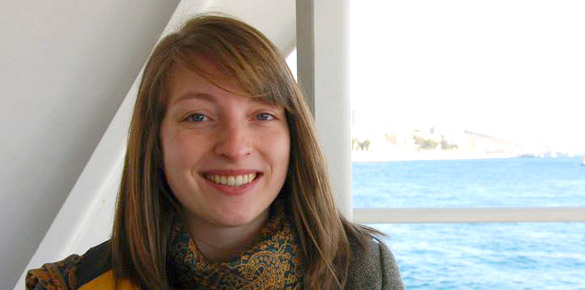
The game that Laura Meeker '14 designed combines engineering and literature to
convey the essence of Malory's Morte d'Arthur.
RESEARCH
Research Portfolio
Research is the engine for the School's capacity to help meet the world's great challenges. To name just a few areas of impact, MIT SHASS research helps alleviate poverty, safeguard elections, steer economies, understand the past and present, inform health policy, assess the impact of new technologies, understand human language, and create new forms at the juncture of art and science.
Research Portfolio
POLITICAL SCIENCE
Inside the minds of voters | Teppei Yamamoto
Assistant Professor Yamamoto proposes a new polling method to reveal how voters make choices at the ballot box. Any analysis of exit polling reveals a welter of numbers whose meaning remains slightly elusive. Now, a new paper co-written by Yamamoto suggests a way to assess the relative impact of several factors at once, using a method known as “conjoint analysis."
Story
POLITICAL SCIENCE
MIT nuclear policy studies expands | Historian Francis Gavin is the first Frank Stanton Chair
"We’re in a renaissance of nuclear studies now, and MIT is at the center of it,” says Gavin, who joins the Institute after 14 years at the University of Texas at Austin, where he launched the Robert S. Strauss Center for International Security and Law. In his position at MIT, Gavin will facilitate collaboration among political scientists, historians, and policymakers.
Story
POLITICAL SCIENCE
Modeling cyberspace control worldwide | Nazli Choucri
Choucri, who analyzes issues of governance, politics, and participation in online communications, says there are two major debates about governance of cyberspace: about the roles that the private sector and international organizations should play in managing the Internet; and about cyber security and cyber espionage. Talks on the two debates should converge, she says, as there are many overlapping issues.
Story | Related video
LITERATURE
Intellectual property | Sandy Alexandre
Associate Professor of Literature Sandy Alexandre explores the complex relationship between black literature and history. Her first book The Properties of Violence (University Press of Mississippi) was published in 2012. Now at work on a new book, Alexandre is researching the many psychological and historical meditations found in African-American literature about what it means to own property.
Story

SCIENCE, TECHNOLOGY, AND SOCIETY
Sources of innovation | Loren Graham on how society impacts science and technology
Graham, Professor emeritus of the History of Science, says innovators particularly need "different frames of mind in crisis moments, when one doesn't know how to go forward." Sometimes these frames of mind are philosophical, sometimes they are moral, religious, or ethical.
More
POLITICAL SCIENCE | SECURITY STUDIES
After the U.S. leaves Afghanistan, then what? | Vipin Narang
Narang, an Assistant Professor of Political Science, examines the implications of the military drawdown for regional rivals India and Pakistan. “The direct competition between India and Pakistan was held at bay with the U.S. invasion and presence of NATO forces the last 14 years,” Narang said, adding: “The drawdown will create a vacuum now where Pakistan and India, I think, re-engage in a more overt proxy competition and vie for influence in Afghanistan.”
Story
SCIENCE WRITING
The challenges and impact of science writing | Interview with Seth Mnookin
Mnookin, an Assistant Professor of Science Writing, observes that "Scientists will say, 'With all of the tests that we’ve done, we’re fairly confident that vaccines don’t cause autism.' In science-speak, that means we’re virtually 100 percent confident. In media-speak and public-speak that implies there’s real doubt. That’s one reason we need science writers — people who really understand the language of science and the language of non-scientists and can translate between the two."
3 Questions Interview

L to R: Loren Graham, Professor emeritus of the History of Science; Vipin Narang, Assistant Professor of Political Science; R: Seth Mnookin, Assistant Professor of Science Writing, and Associate Director of the Graduate Program in Science Writing.
MIT NEWS
Current SHASS research stories by the MIT News Office team
Archive of recent and past SHASS research and feature stories by the MIT News writers
More
FACULTY PUBLICATIONS
Bookshelf
The research of MIT's School of Humanities, Arts, and Social Sciences appears principally in the form of books and publications, and music and theater productions. These gems of the School provide new knowledge and analysis, innovation and insight, guidance for policy, and nourishment for lives.
Take a look
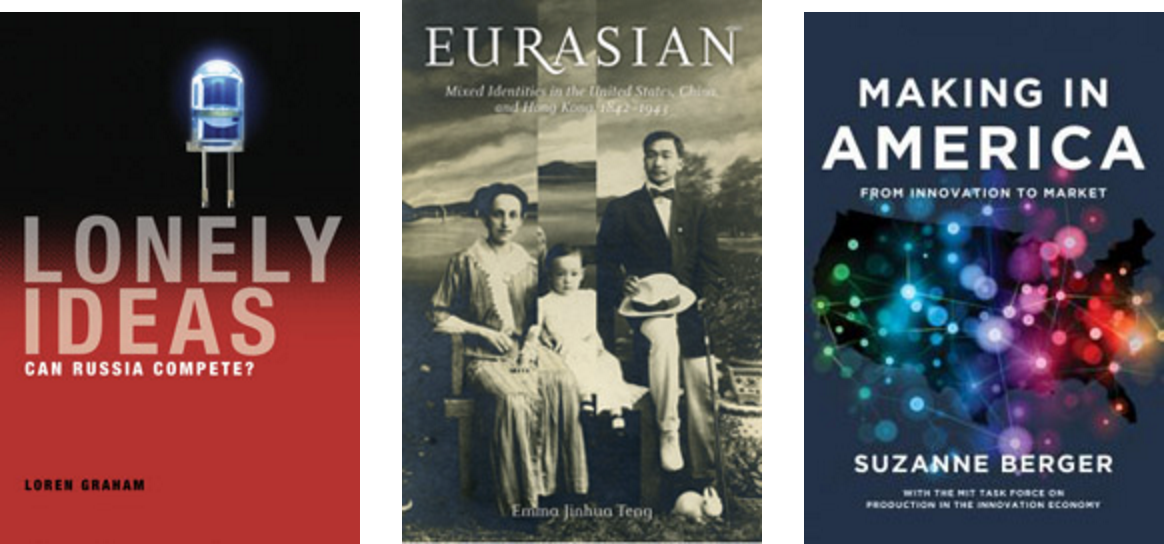
Recent books
L to R: Lonely Ideas: Can Russian Compete? (MIT Press, 2013), by Loren Graham, Professor emeritus of the History of Science; Eurasian, Mixed Identities in the United States, China, and Hong Kong, 1842-1943 (University of California Press, 2013), by Emma Teng, T.T. and Wei Fong Chao Professor of Asian Civilizations and Associate Professor of Chinese Studies; and Making in America, From Innovation to Market (MIT Press, 2013), by Suzanne Berger, Raphael Dorman-Helen Starbuck Professor of Political Science, co-chair of the Production in the Innovation Economy project, and director of the MISTI MIT-France program.
IN THE MEDIA
THE ARTS AT RESEARCH UNIVERSITIES
MIT students participate in Emerging Creatives conference
MIT students participated in the recent "Emerging Creatives" conference hosted by a2ru, a national advocacy organization for integrating the arts into research universities. MIT is a founding member of a2ru. Speaking at the event, Leila Kinney, Executive Director of Arts Initiatives at MIT, noted that “Beginning with the presidency of Jerome H. Wiesner in the 1970s, MIT has incorporated the arts as a conduit of innovation, believing them to be essential to the creative environment of a research institution renowned for science and engineering."
Story
THE ARTS AT RESEARCH UNIVERSITIES
STEM to STEAM
A group of students and faculty from MIT, Brown University, the Rhode Island School of Design champion the idea of adding another letter — “A” for “Arts” — to turn the acronym STEM into STEAM.
Story + Slide Show at Scientific American
MUSIC + SCIENCE
The hidden structures of music are universal patterns of nature | Markus Buehler
Markus Buehler, materials scientist and Head, MIT Department of Civil and Environmental Engineering, explains how music can help scientists be more creative.
Story in Slate
SCIENCE, TECHNOLOGY, & SOCIETY
Physicsts' Golden Jubilee | David Kaiser
Kaiser, the Germeshausen Professor of the History of Science in SHASS, writes, "We reached the 50th anniversary of some pretty remarkable developments in physics several of which percolated up independently of each other in 1964, and most of which passed without much notice at the time. This is a short piece to mark the anniversary."
Story at The Huffington Post
SCIENCE, TECHNOLOGY, AND SOCIETY + PHYSICS
Kaiser proposes quasar experiment to close "free will loophole" in quantum physics
"The researchers expect this experiment to verify quantum theory's predictions, but if the test finds otherwise, 'that would be a win also,' said MIT's David Kaiser, the Germeshausen Professor of the History of Science in SHASS, and Senior Lecturer, Department of Physics. 'It could mean that we have to change quantum theory, the fundamental theory governing matter. Or it could mean that there could be weird activity in the very earliest moments of the Big Bang.'"
Story at Nature | Story at ArsTechnica | Story at NBC News
Composite optical and X-ray image, quasar 3C 186. (NASA/CXC/SAO/A Siemiginowska et al. Optical AURA/Gemini Obs)
THEATER + TECHNOLOGY
Jay Scheib and company take theater to the tech age
MIT Associate Professor of Theater Jay Scheib has developed a trademark style by capturing the acting on stage with an HD camera for a simulcast film presentation — for this performance it was titled “The Disinherited.”
Story at WBUR
COMPARATIVE MEDIA STUDIES / WRITING
Interview with Alan Lightman
"The area of science that I work in, theoretical physics, is very heavy with philosophy, and I've been inclined, since a young age, to ask idea-type questions....When you're writing fiction, you have to handle ideas like high explosives: You've got to be very careful with them, so that they don't dominate the work. My strategy is to place a main character in a situation where they have to confront an idea — and then I get out of the way."
Interview at The Boston Globe
RESOURCES
The MIT SHASS Online Publications Directory —
A convenient, one-page portal to all the print and online publications produced by the School's 20+ academic units, centers, and programs. From Audits of the Conventional Wisdom to Scope to LIT@MIT — these publications keep readers up-to-date on current research, news, community profiles, and commentaries in their respective fields.
Take a look
HEALTH CARE ECONOMICS
Fed study says health reform can reduce financial stress, bankruptcies | Jon Gruber
The Wall Street Journal's MarketWatch quoted MIT economics professor Jonathan Gruber as saying that the Federal Reserve study supported similar findings in other parts of the country.
Story at The Wall Street Journal
POLITICAL SCIENCE
Crimes against humanity: why we must never become numb to the phrase | Jim Walsh
"During the same week that saw Ukraine teetering on the brink and the Olympics, there were two other events worth noting. They are very different in scale and meaning but linked by a concept that defined the 20th century: crimes against humanity."
Story by Jim Walsh at WBUR
ENVIRONMENT + ECONOMICS
India's particulate problem | Michael Greenstone
Pollution is not simply an unavoidable side effect of economic growth, but a reflection of societal choices. Seizing these opportunities for reform would lead to longer and healthier lives.
Commentary at The New York Times
RECESSION AND TWO AMERICAS
A tangled fate of prosperity and struggle | Daron Acemoglu
For MIT Economist Acemoglu, the co-author of Why Nations Fail, the split personality of these years of crisis and recovery is “no puzzle.” “The United States is still the most innovative country in the world,” he said. The problem, he says, is that the innovations produced by the thriving set don’t necessarily translate into jobs for struggling people.
Story at The New York Times
ARTS + SCIENCE
MIT exhibit reveals how a poet conquered space before Yuri Gagarin
"MIT was one of the first institutions to support this concept, facilitating interaction between artists, scientists and engineers at the Center for Advanced Visual Studies – where Takis was a fellow in the late '60s. A new Center for Art, Science & Technology (CAST) augments MIT's laudable commitment."
Story at Forbes magazine
SOLVING INEQUALITY | ECONOMICS
Who are the 1 percent? | Comments by Robert Solow
Solow was a senior economist for John F. Kennedy. He's an emeritus professor at MIT, and his 1987 Nobel was for his work on theories of economic growth.
Story at the Los Angeles Times
SCIENCE, TECHNOLOGY, AND SOCIETY
Keeping alive the big questions | Sherry Turkle
One important condition that alllows good conversation to flourish between friends is an uninterrupted full attention to one another, says Turkle, who has interviewed dozens of people for an forthcoming book entitled Reclaiming Conversation. Turkle is Abby Rockefeller Mauzé Professor of the Social Studies of Science and Technology.
Article at The Huffington Post
STAY IN TOUCH
SHASS Calendar
Forthcoming events
MIT SHASS social media
Great ideas and images will come to you daily.
Take a look
SHASS Twitter
Follow
The Listening Room
MIT's finest music online
Listening Room Feature
Faculty Opus Selections
Listen
Works by MIT composers + live
performances by several of MIT
Music's finest performing artists.
__________________________
Arts at MIT Calendar
Concerts, theater, genre-defying works
SHASS News
Subscribe for updates as news is posted
RSS News | RSS Multimedia
TOUR de SHASS online
Explore MIT's humanities, arts and social science fields
All MIT HASS classes are designed to empower students —
for a lifetime of creativity and growth.
